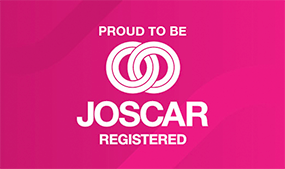
28/01/2022
Is your emergency service ready to manage a Major Incident?
The UK’s emergency services play a critical part in protecting the public and keeping people safe but, like all organisations and businesses, there are always lessons to be learned and improvements to be made to enhance their role in major incidents.
Major incidents, such as the Manchester Area terrorist attack of 2017, the Grenfell Tower fire, and the London bombings of 7th July 2005, are mercifully rare in the UK. However, this gives the emergency services less opportunity to implement their Major Incident Plans on a regular basis. Reliance is often on their professional expertise and rehearsals to decide on the best course of action when a major incident occurs. A further important area to assist our readiness is lessons that can be learned for past experience;
The role of the post incident inquiry is critical if we are to learn what both works and does not. Well run post incident analysis has provided vital learning points and improvements that have potentially saved many lives in future incidents. The role of the post incident inquiry with positive and negative feedback is not only used in medical incidents. High risk industries, including aviation and remote oil and gas, have sophisticated mechanisms for gathering information, assessing the outcomes and then implementing positive change. Three examples are noted below;
The Kerslake Report
Independently investigated the emergency response to the 2017 Manchester Arena terrorist attack in which 23 people died and 1,017 others were injured. In the report, positive and negative conclusions were drawn about the response of the emergency services, with considered recommendations for improvements noted and cascaded throughout the services.
The Cullen Report
The Cullen Report was prompted by Occidental Petroleum's Piper Alpha disaster on 6 July 1988, in which gas condensate ignited, killing 167 of the 229 people on board the oil platform.
Piecing together precisely what happened, why it happened and how to prevent another “Piper Alpha” happening again took Lord Cullen well over a year and 400 pages. The impact can be seen across the industry today and his verdict on the present state of offshore safety continues to hold great weight. The introduction of an installations “safety case” was a major recommendation that continues to be the cornerstone of industry safety.
United Airlines Flight 173
A scheduled flight from on December 28, 1978, the aircraft flying this route ran out of fuel while troubleshooting a landing gear problem and crashed in a suburban Portland neighbourhood killing 10 on board.
The last recommendation following the incident addressed a flight deck resource management problem and was the genesis for major changes in the way airline crew members were trained. This new type of training addressed behavioural management challenges such as poor crew coordination, loss of situational awareness, and judgment errors frequently observed in aviation accidents. It is credited with launching the crew resource management revolution in airline training. Within weeks of the NTSB recommendation, NASA held a conference to bring government and industry experts together to examine the potential merits of this training.
As can been seen from the three examples noted, significant changes and improved response can be achieved by post incident work. An excellent quote to sum up why this is so important for our preparation is noted by Otto Von Bismark below;
“Fools learn from experience. I prefer to learn from the experience of others”.
How TSG Associates can support your emergency response?
At TSG Associates we work to understand and maximise your areas of expertise and empathise with the pressures you will be under when responding to large incidents. Our systems are designed to work when you are under pressure alongside simplifying the ability for your rehearse a future response
Many of our life-saving product designs are enhanced from the work of post incident reports.
Our SmartTriage™ solutions enable casualties to be triaged effectively from point of injury through to evacuation to the correct medical facility. Designed to deliver robust and streamlined procedures, SmartTriage™ helps to maintain a sense of order in the midst of confusion, facilitating effective decision-making in order to maximise survival rates and reduce suffering.
Contact TSG Associates
To find out more about how we could support you provide an effective and coherent major incident response, please call us on 01422 557784.
Image Source: Unsplash










